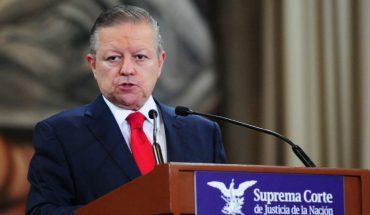
Chile needs a diversified and pluralistic identity dialogue that sinceres its origins in the face of the crude evolution of the sense of belonging imposed by its elites. We have moved from being children of the “motherland”, to “the English” of Latin America, “the jaguars” and other forced nominations of confused or adulterated identity, which have placed us far from the legacy of our native peoples, in a context where the present and a desirable future invite us to a greater interculturality, tolerance and appreciation of diversity in coexistence.
The seriousness of what happens in La Araucanía is not surprising, considering the notion of escalation of conflict when the violence of the state and some radicalized groups naturalize the exercise of violence, both to impose order and authority and to make visible insurgent presence in their forms of struggle, adding in this last episode strategies typical of Colombian pro-paramilitary “uribism” , that the Justice will have to investigate promptly about its origin, instigators and organisation, because of the danger they engender in the face of conflicting relations passing through land with too much dry grass and short wick.
De-escalating this conflict and this crisis affecting the State of Chile and its original peoples, not only in its conjunctural dimension, but above all in its historical dimension and projected future, involves recognizing the multi-causal nature of this conflict (structural, valóric, interests, relationship and information) and the ecosystem nature of the crisis (political, economic, social cultural , environmental, territorial) that affects the peoples of Chile.
The expression “indigenous peoples of Chile” houses a design solution, because in it we recognize the existence and intrinsic value that in the national territory circulate and coexist our original communities and their worldviews that, within their attributes, are more resilient to address the scenarios of crisis that currently put in check the contemporary society heir to the artificialization of life. Chilean society has much to learn from justice, medicine, the art of the original peoples and, above all, from the simplicity of living as a species that is part of nature and not its main predator.
The idea of Aymara justice when it comes to territory is geared not to the more or less equitable portion of land for each landseeker, but the balance is placed in an equitable distribution of the waters of that territory as a source of life. In Mapuche culture, “paihuen” means being at peace in one place. We already know that peace has different meaning depending on who defines it. The “Roman pax”, which means order and authority, is typical of those who, from the power of the State, establish their homogeneous and vertical peace, the greatest of the time militarized, so that the recourse of force against an internal enemy may be expressed.
Being at peace in one place (paihuen) results from a conscious and persistent effort of dialogue to process differences in identities, cultures, needs and interests among actors who cohabit a territory. Diversity and differences can coexist and generate territorial coexistence when dialogue is projective and promotes learning communities around a present and future assumed in dynamic and conscious co-construction.
In the last two years, it has been the power of the National Congress, not the Government of Chile, the power of the state that has put the points on the íes to address two crises of magnitude, such as the crisis of systemic institutional legitimacy visibility into by the social outburst, calling for a constituent process and, now last, its action in the face of the pandemic crisis , streamlining direct economic aid to millions of Chileans with the withdrawal of 10% of the planned savings. Both actions of the National Congress have put the dignity of citizenship at the heart of these political and economic solutions as a priority.
In this sense, once again, it has to be the National Congress that addresses this multifactorial conflict and ecosystem crisis affecting the indigenous peoples within the territory administered by the State of Chile.
Why the National Congress and not the Government on duty? The Executive is fortunately able to devise a plan, basically repressive and imposing, to impose his order and authority, focusing more on the more or less violent juncture of the process that is specifically experienced in La Araucanía. Instead, the Legislative Power may call for all the original peoples to parliament for them to give their own version and vision of what it means to be at peace in this territory. Just as he called on all political forces to open a constituent process, today he can summon the indigenous peoples who live together in mainland and island Chile to talk about coexistence and shared future.
It is urgent to “unmapuchize” the historical conflict and the ecosystem crisis affecting Chile in coexistence with its native peoples, including because the non-Mapuche native peoples have legitimate aspirations and demands to be at peace in the territory. It is obvious that it is not the same to be and feel rapa nui, aymara or Mapuche in its relationship with Chile, as well as not, to feel the weight of the State of Chile in island territory that continental, neither better nor worse, but different in its spatial and temporal dimension.
Chile requires chering, cultivating and caring for its diversity and plurality. Other countries have achieved this by addressing the relationship with their native communities through various strategies that promote systemic and ecosystem solutions. Perhaps, the mere convening by the National Congress a first Parliament of Native Peoples, to dialogue around its own looks on its coexistence in this Chile quilter, mixed, adolescent and abhorration in its edentiary superbs, is a first great step.
It is necessary to “unmapuchize” the agenda of the governments on duty which, historically, have not given the width to propose a multi-national dialogue in Chile, dealing sincerely with our identity complexes, where, sometimes, the descendants of Germans think themselves more German than the Germans (the country in this case does the same). A strategic dialogue of this nature can also make us appreciate the great contribution of naturalized foreigners as Chileans and foreign residents and immigrants who are part of the current Chile. Finally, in these matters, ignorance has been proportionate to the disiledness with which this great outstanding issue has been dealt with.
Efforts must therefore be made to ensure that the National Congress, which reached votes of two-thirds extraordinary and unpublished, should move first towards a great call to invite the original peoples to discuss in the same halls of the constituted power and, secondly, that these minutes constitute a great input to the constituent process to be inaugurated with the approval of a Constitutional Convention and , from this citizen democracy, progress can be made in a great multi-national dialogue where we can all recognize ourselves idly as inhabitants of a new democratic State of Chile, proud of its multi-nationality.
The content poured into this opinion column is the sole responsibility of its author, and does not necessarily reflect the editorial line or position of El Mostrador.





